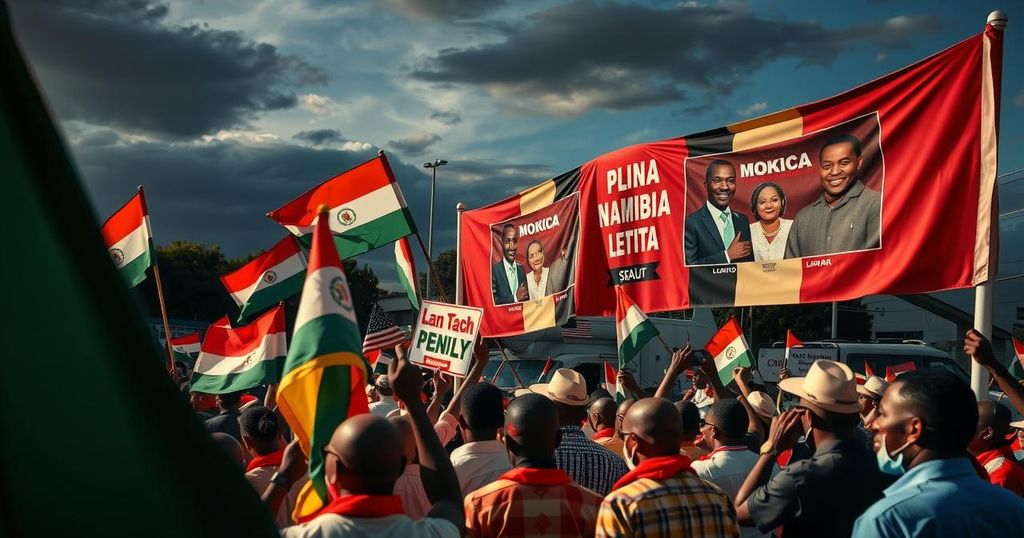Netumbo Nandi-Ndaitwah has been elected as Namibia’s first female president, winning 57.31 percent of the vote. Her main opponent, Panduleni Itula from the IPC, garnered 25.5 percent. However, the IPC rejects the election results, citing serious irregularities and logistical issues during the voting process.
Netumbo Nandi-Ndaitwah, the Vice-President of Namibia and candidate from the ruling SWAPO party, has won the presidential election, securing 57.31 percent of the votes according to the election commission’s announcement on Tuesday. Her principal opponent, Panduleni Itula of the Independent Patriots for Change (IPC), received 25.5 percent of the total votes. This historic victory makes Nandi-Ndaitwah the first female president of Namibia, a nation that has been under the governance of the SWAPO party since its independence in 1990.
The IPC has expressed strong objections to the election results, citing numerous irregularities that they claim compromised the fairness of the electoral process. The elections held on November 27 were marked by significant logistical challenges, including a shortage of ballot papers that resulted in extended voting times. Voters reported waiting as long as 12 hours in queues, leading some to abandon their attempts to cast their ballots altogether.
The election of Namibia’s president is a significant event in the country’s political landscape, especially given SWAPO’s long-standing dominance since independence from South African rule in 1990. The recent election saw a high level of competition, particularly from the IPC, which has emerged as a notable opposition party. As the first female president in Namibia’s history, Nandi-Ndaitwah’s election could signal a shift in the political dynamic, potentially influencing the direction of policy and governance in the nation. However, allegations of irregularities in the electoral process may provoke further political tension.
In conclusion, Netumbo Nandi-Ndaitwah’s victory in Namibia’s presidential election not only marks a significant milestone in the nation’s history as she becomes the first female president but also highlights ongoing challenges within the electoral process. The IPC’s refusal to accept the election results underscores the deepening political divisions in Namibia. As the country moves forward, the implications of this election may lead to crucial discussions regarding electoral integrity and governance.
Original Source: www.barrons.com






